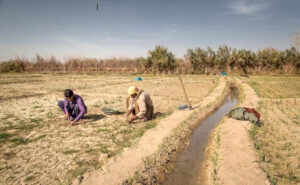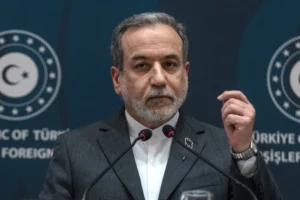KABUL (SW) – The suspension of both government and private scholarship programs for studying abroad, a decision by the Ministry of Higher Education under the Islamic Emirate, has left many scholarship applicants’ academic pursuits at a standstill.
In this report, 30 young individuals who intended to pursue studies abroad have expressed that they were informed of this restriction after visiting educational service providers and the Ministry of Higher Education.
Rahim Shah, a scholarship applicant for studying abroad, says: “I applied multiple times for scholarships to Pakistan and Turkey but received no positive response. It’s been almost a month since I learned through friends and social media that scholarships are no longer being offered.”
Saboor, another applicant, shared: “When I approached educational service companies, they told me to go to a second or third country to receive a scholarship. Our request is that they facilitate the distribution of scholarships.”
Young people hoping to study abroad emphasize that, given the current educational conditions in Afghanistan, particularly in master’s and doctoral programs, this ban could have irreversible consequences for their academic growth and career development.
Barkatullah, a student at an institute, says: “It’s very unfortunate that we can’t continue our studies. Because of this, we have fallen behind many countries, even Pakistan and Iran, in fields like medicine.”
Safiullah, a graduate from the Faculty of Economics at the World University, who planned to continue his studies for a master’s degree, says: “The quality of education here is inadequate. I see a very bleak future for young people in Afghanistan. It is important that opportunities for education are provided.”
On the other hand, several young women who had hoped to pursue education abroad also mention that the de-facto government’s decision has closed all educational paths for them.
Maryam Ahmadi says: “Not finishing school is one problem, not being able to attend university is another. Besides that, we cannot even find a job. But the biggest problem is that we can’t get a scholarship.”
Marwa Safi, who wished to study medicine abroad, says this restriction has created significant challenges for her. “Young people face countless challenges; they are not independent and cannot focus on their studies. Their time and potential are being wasted.”
Educational service providers have confirmed that it is no longer possible to obtain student visas within Afghanistan, and applicants are now required to go to neighboring countries like Iran or Pakistan.
In a report, four educational service providers were interviewed. They explained that since the political changes in the country, obtaining student visas has become problematic and has been fully banned by the Ministry of Higher Education after a while.
According to them, following the Ministry’s decision, young people seeking scholarships are now forced to go to neighboring countries to obtain visas.
A representative from one of the educational service companies, who wished to remain anonymous, says: “Visas are processed from second and third countries. For example, Afghans get their student visas from Iran or Pakistan. However, governmental programs are not yielding much result, but many people are now pursuing personal programs.”
Furthermore, the head of the “Global” educational service company states that the lack of embassies in Afghanistan is a serious obstacle for applicants and adds that this situation had already forced applicants to go to other countries even before the Ministry’s ban. “There are no embassies in Afghanistan; there’s no issue with Iran, Pakistan, or China because those are personal programs. We don’t process government ones.”
We attempted to obtain the exact timeline of the scholarship ban, but both the Ministry of Higher Education and educational service providers did not provide a clear response.
According to findings by Salam Watandar based on reports from various media outlets, the restriction on scholarships from other countries to Afghanistan has been in place for over a year and was recently fully banned.
An informed source at Kabul University also told Salam Watandar that the distribution of scholarships in master’s and doctoral programs for university faculty members has been prohibited. The source added, “The Ministry of Higher Education has banned scholarships and studying abroad for professors due to economic issues. I am not sure about students, but there are rumors that it is also restricted.”
Meanwhile, Abdul Hanan Azizi, the Director of Publications at the Ministry of Higher Education of the de-facto government, states that the Ministry is working on a new policy and that once it is finalized, the distribution of scholarships for studying abroad will resume. He adds that currently, nearly 441 students and 1,896 teachers and staff are studying in 56 countries. “The Islamic Emirate is working on a mechanism to determine how and to which countries students should be sent. Once finalized, young people will once again have the opportunity to receive scholarships.”
The suspension of scholarship distribution comes amid ongoing restrictions on girls’ education in Afghanistan, with the most recent measure being the temporary closure of health institutes to female students by the Ministry of Public Health.






